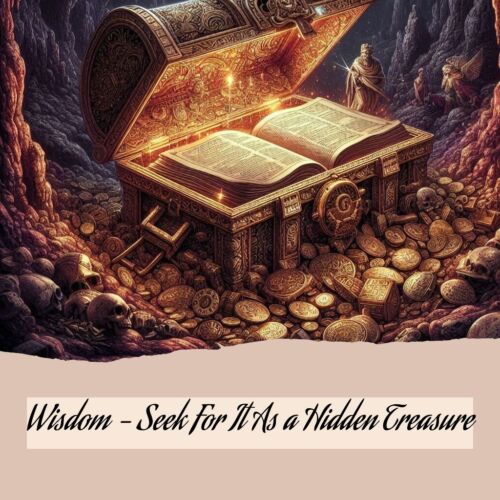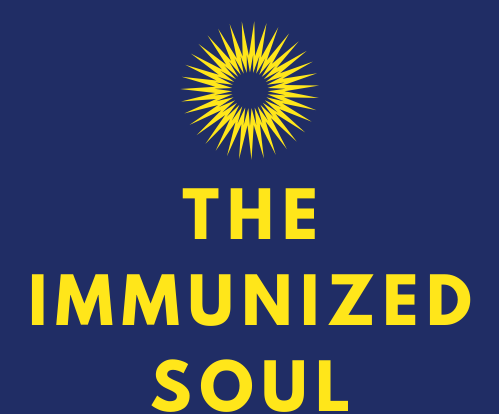Proverbs 2 Explained: A Life-Changing Bible Commentary
More than ever, we are bombarded by constant messaging on our phones, tablets, podcasts—you name it. The constant filtering can be mind-numbing and draining.
The process can be incredibly challenging for young people. We are all trying to find our identity and fit in at a young age. Therefore, young adults are easy prey to pervasive idealistic and nihilistic messaging from secular sources.
If you’ve ever felt lost in a world full of dubious choices, the book of Proverbs offers a treasure trove of practical advice and moral guiding principles.
In particular, the wisdom found in Proverbs chapter 2 is a timeless hidden treasure.
Its concepts are like a cheat code for life, helping you navigate everything from friendships to tough decisions.
The best part? Learning the biblical concepts in Proverbs 2 is not just about memorizing rules.
The benefit comes from your ability to develop a “sixth sense” of right and wrong. Imagine that! It’s like becoming a real-life superhero when it comes to making good choices.
So read on and delve into “Proverbs 2 Explained” and see how absorbing these powerful messages can supercharge your life.
Who Wrote Proverbs 2?

While King Solomon is traditionally credited with its authorship, it’s essential to recognize that the book of Proverbs is a collective work that captures the wisdom of many contributors. Solomon’s influence is undeniable, but the wisdom in Proverbs chapter 2 transcends any author, offering timeless guidance for all who seek it. That’s why, in the end, I say, “Who cares who wrote it.” What matters is what the messages teach us and the ways they are just as relevant today as they ever were.
Structure and Theme of Proverbs 2 Explained!
This second chapter of Proverbs is like a rollercoaster ride through the theme park of wisdom.
The Blueprint of Brilliance: How Proverbs 2 is Built
There is nothing random about the structure of Proverbs chapter 2. Check out this brilliant craftsmanship around three main ideas:
1. The pursuit of wisdom (verses 1-4)
2. The prize of finding wisdom (verses 5-11)
3. The protection wisdom offers (verses 12-22)
It’s like a three-act play, but you get life-changing insights instead of drama.
The Heart of the Matter: What’s Proverbs 2 Really About?
Let me put it this way: if Proverbs 2 were a pizza, its main ingredient would be the concept known as the “fear of the Lord,” not pizza dough.
But hold up! Before you start picturing a scary, thunderbolt-throwing deity, let me explain.

In the Hebrew Bible, “fear of the LORD” is more like a deep respect and awe. It’s like standing at the edge of the Grand Canyon and feeling small but in a good, awestruck way. This fear is the start of true wisdom because if you genuinely imbibe it, the result is excellent humility that leads to great curiosity, learning, and appreciation of God’s creation.
Why Should You Care? The Benefits of Proverbs 2 Explained
Wisdom is like the Swiss Army knife for navigating life, and Proverbs 2 is the instruction manual.
Concepts include:
1. Understanding righteousness, justice, and general morality. In other words, instructions for “how to be a good human.”
2. Protection from wicked people and their crooked ways (it’s like a built-in bad guy detector!)
3. Increased ability to make intelligent choices (goodbye, embarrassing TikTok videos!)
The Secret Sauce: How Proverbs 2 Stands Out
The chapter uses a clever literary device called personification. It turns wisdom into real-life imagery.
For example, read verse 4: “If you seek it like silver and search for it as for hidden treasures…” It paints a vivid picture of wisdom as a buried treasure. Many more verses like this make these biblical concepts super relatable.
Unlocking the Hidden Treasures: Verse-by-Verse Breakdown of Proverbs 2:
The Importance of Seeking Wisdom (Proverbs 2:1-5)

“My son, if you accept my words and treasure up my commandments;
If you make your ear attentive to wisdom and your mind open to discernment;
If you call to understanding and cry aloud to discernment,
If you seek it as you do silver and search for it as for treasures,
Then you will understand the fear of the LORD and attain knowledge of God.”
Notice how Proverbs 2 starts with a direct call.
These verses emphasize the importance of actively seeking wisdom and understanding. The Hebrew word used for “search” here is “chaphas,” which means to search with painstaking care. It’s the same word when describing how thoroughly the Israelites searched Canaan before entering the Promised Land.
In other words, seeking wisdom is not just passive listening; it’s about engaging with God’s teachings and clinging to them like you do your iPhone.
The reward? “Then you will understand the fear of the Lord and attain knowledge of God.” This is the ultimate benefit of wisdom — gaining a deeper understanding of the Divine.
Wisdom Comes from God (Proverbs 2:6-9)
“For the LORD grants wisdom; Knowledge and discernment are by His decree.
He reserves ability for the upright and is a shield for those who live blamelessly,
Guarding the paths of justice, protecting the way of those loyal to Him.
You will then understand what is right, just, and equitable—every good course.”
The first few verses of the second chapter of Proverbs call your attention to seeking wisdom earnestly. Verse 6 points you directly to the source that gives wisdom — God.
This verse establishes a crucial connection between your Creator and wisdom. It tells you that you’ll find God if you genuinely seek to find the knowledge of God (a.k.a. wisdom). And vice-versa. Hence, the knowledge of God is a treasure that He bestows upon those who seek it earnestly.
Therefore, true wisdom is a divine gift. It’s not something we can conjure up on our own. And it’s not simply about accumulating knowledge or cleverness. It’s about understanding life from a divine perspective and aligning your choices with God’s principles.
Verses 8 & 9 highlight the protective nature of wisdom. In other words, wisdom is like a shield, guiding you along the paths of righteousness and keeping you safe from the ways of darkness.
The Protection and Guidance of Wisdom (Proverbs 2:10-15)

For wisdom will enter your mind and knowledge will delight you.
Foresight will protect you, and discernment will guard you.
It will save you from the way of evil men, from men who speak duplicity,
Who leave the paths of rectitude to follow the ways of darkness,
Who rejoice in doing evil and exult in the duplicity of evil men,
Men whose paths are crooked and who are devious in their course.
In these verses, we see wisdom manifesting as intuitive guidance—something like a spiritual immune system keeping you safe from the viruses of folly and wickedness.
If you think about it, the innate protection from basking in God’s wisdom is as valuable as any protection from external threats in your life. I can firsthand attest to this fact.
Having a connection to The Lord Almighty and His word has resonated many times in my conscience when opportunities arise that would have caused me to give in to my worst instincts. One such occasion was an international trip to attend a bachelor party. And yes, from all accounts, it was as explicit as anyone would imagine.
But here’s the kicker: I COULD CARE LESS about such an event in my wisdom-loving, God-fearing state of mind. There was not an inch of excitement on my part. I wanted no part of it. And I was even relieved to be able to bow out inconspicuously. I routinely thank God for the blessing of the perspective His wisdom has brought into my life.
So, the bottom line is that wisdom becomes a guiding force for your desires and motivations. It shapes your choices, not just out of obligation but because you recognize the inherent value of wisdom in living a productive and righteous life.
Protection and guidance, indeed! Amen!
The Dangers of Ignoring Wisdom (Proverbs 2:16-19)

It will save you from the forbidden woman, from the alien woman whose talk is smooth,
Who forsakes the companion of her youth and disregards the covenant of her God.
Her house sinks down to Death, and her course leads to the shades.
All who go to her cannot return and find again the paths of life.
The “forbidden woman” here is an excellent metaphor for temptation that lures you away from the paths of the righteous.
How often have you been tempted by something you know isn’t good for you, but it just sounds so darn appealing? That is the “smooth talk” the author of Proverbs 2 refers to.
But don’t get it twisted.
You don’t have to live an utterly nefarious lifestyle to relate to the teachings within these verses. The “adulteress” in my life appears when I’m trying to stay on a good path and eat healthy. Then, all of a sudden, I hear “smooth talk” from a box of donuts(or pizza… etc.) someone negligently brought into my zone. Ugh!
The point is, it’s the same concept. Giving in to those temptations can quickly spiral into bad decisions and negative consequences. Hence, these verses are cautionary, warning you to be mindful of compromising situations that can lead you astray from an otherwise fruitful existence.
The Rewards of Following Wisdom (Proverbs 2:20-22)
So follow the way of the good and keep to the paths of the just.
For the upright will inhabit the earth, the blameless will remain in it.
While the wicked will vanish from the land and the treacherous will be rooted out of it.
The chapter concludes, hopefully, emphasizing the rewards of following wisdom. Those who walk in the ways of the Lord with integrity and follow the paths of wisdom and righteousness “will inhabit the earth.”
And “the wicked will vanish from the land.”
These statements speak to the level of “quality of life” that awaits those who choose one or the other. Inheriting the land symbolizes a well-lived life of purpose and fulfillment that is pleasant to your soul. You can probably guess what awaits the “wicked.”
Overall, these final verses encapsulate Proverbs 2’s overarching message: wisdom is a treasure worth seeking, and its benefits are manifold. It leads to a life of righteousness, protection, and, ultimately, a deeper understanding of the divine.

5 Practical Steps for Cultivating Wisdom
Believe it or not, translating biblical concepts into everyday applications is not too difficult. The ideas put forth in the second chapter of Proverbs are concepts we can apply daily.
- Prayer(of course): It all starts here. Ask God to impart wisdom before you study His word or meditate. Ask for discernment to understand His truth and distinguish it from worldly wisdom.
- Apply the wisdom you learn to make everyday decisions. This may sound simplistic, but I think of my everyday choices before God’s direction entered my life, and it’s like night and day. For one, I can tell I’m more charitable when encountering homeless people on the street.
- Guard your mind and senses from ungodly influences. Again, I didn’t realize how much “dark” secular influences affected my life until I came to the “light.” Music was a big part of my youth, and those influences surely got me off track for a time or ten thousand. It was totally fake and had a corroding effect on my soul. Physically, you are what you feed your body. And spiritually, you definitely are what you feed your soul.
- Value knowledge and seek wisdom earnestly, as the Proverb says. I did this unknowingly when I dove into a very disciplined Bible study period years ago(I had problems). The results were an entirely new perspective—a clear, uplifted, and purpose-filled perspective. After which, I felt brand new.
- One word: TRUST. As the proverb says, trust that seeking wisdom will bring protection and guidance. Just go with it. Initially, it wasn’t the easiest thing for me, but I gave myself no other choice because of my situation. Once you earnestly seek and trust, aha! moments flood your conscience regularly.
Final Thoughts: The True Dividing Line of Humanity—Wisdom!
The actual dividing line in humanity lies not in wealth, ethnicity, power, or status but in Godly wisdom. The second declarative statement I will make is that all problems are spiritual in nature.
How Wisdom Transforms Your Worldview
For the first statement, all that I’ll say—generally speaking—is that the perspectives of those who adhere to Godly wisdom and those who do not are 180 degrees different in one significant way.
People who seek and deal in the word of God are more “big picture” oriented regarding the well-being of humanity. People whose perspective is not influenced by Godly wisdom are primarily oriented to the well-being of a specific group, the individual, or the self.
Why is that? I think people who seek God’s wisdom have a better appreciation and context for the world they live in.
And which perspective is more likely to promote life for humanity in the long run? I have an idea. Feel free to comment below if you see it differently.
The Honest Truth About All Your “Perceived” Problems
Second, “all problems are spiritual in nature” because if you’re godly and wisdom-oriented, you understand there’s a benevolent, loving, caring, and just Higher Force directing the universe. This means there is a just, worthy, and beneficial reason why anything happens in this universe.
To some, this outlook may sound like a cop-out or irrational blind faith. What wisdom and faith have allowed me to understand is that there’s a fruitful, transcendent way to perceive struggles in this world without being overburdened by the constant negativity all around us.
So, if you perceive struggles all around you, there’s a spiritual fix at hand in the form of a shift in your perspective by absorbing God’s wisdom. (The Book of Job can tell you all about it)

Godly Wisdom vs. Self-Centeredness: Which Side Are You On?
Again, notice the linkage here. People without God’s guidance are usually self-centered. They feel they can control all things and have to save the world.
But in reality, what makes them silly and unwise is—when their need to feel (self)righteous about a particular subject or cause leads them to demonize and hurt those who oppose them.
God-fearing people generally feel a purposeful inclination to “save the world” as well. Still, the difference is that we’ll typically pray for those involved in unrighteousness, do our part to do what our God-given wisdom says is correct, and then just fall back on our understanding that the Lord Almighty will be the ultimate judge. We have no ill will whatsoever for those who disagree with us.
Two different approaches. Two different perspectives. All made possible by understanding which side of the godly wisdom equation you land on.
Let me know where YOU stand below. Thanks for reading.







